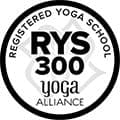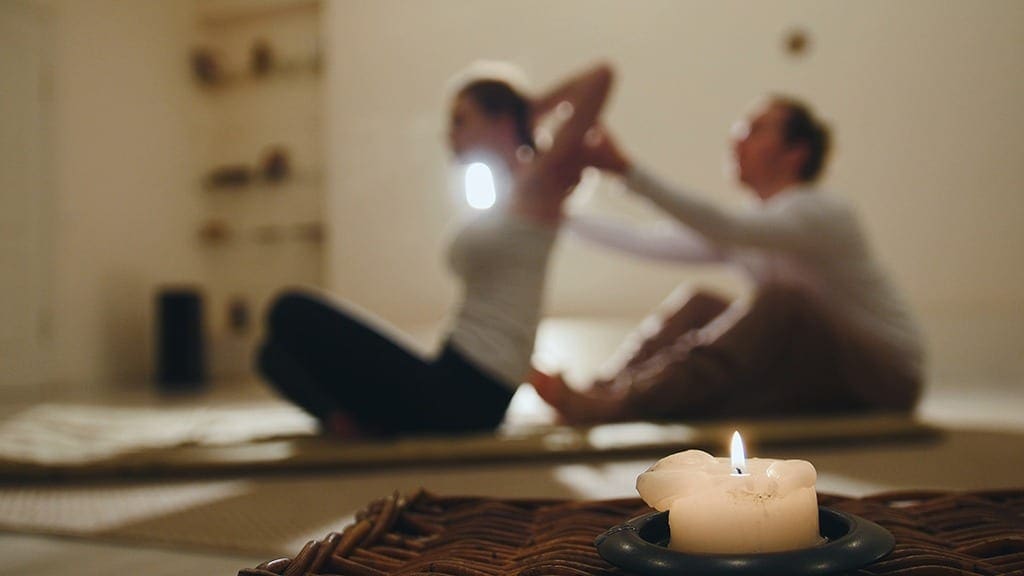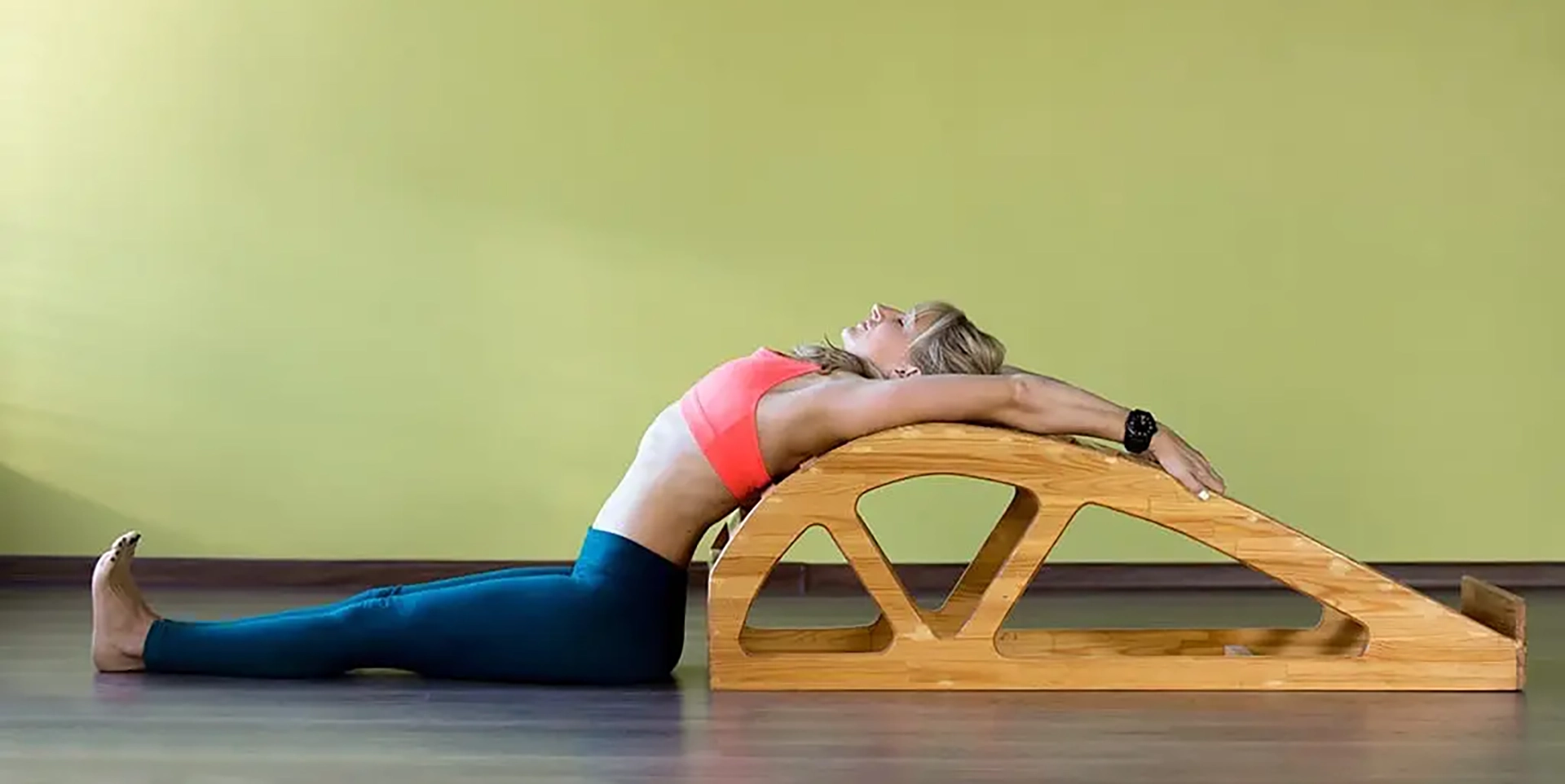300-hr Arogya Yoga TTC
(Yoga Therapy Teacher Training Course)
ONLINE
YOGA ALLIANCE APPROVED COURSE*
*DISCLAIMER
“The yoga therapy components of our course are based on our lead trainers’ PhD and qualifications in the field of physical education, alternative therapies, therapeutic restorative yoga, naturopathy and ayurveda, not derived from our RYS status with Yoga Alliance.”

OVERVIEW
Welcome to Sampoorna Yoga’s Online 300-hour Yoga Therapy Course, where we delve deep into the transformative power of yoga as a therapeutic modality. Here’s what you need to know:
- Understanding Yoga Therapy: Yoga Therapy isn’t a novel concept; it’s rooted in the ancient philosophy of yoga, which has always prioritized prevention and healing. Yet, defining Yoga Therapy can be complex, given its multifaceted nature. However, we offer various perspectives to help grasp its essence:
- International Association of Yoga Therapists (IAYT) defines it as: “Yoga therapy is the process of empowering individuals to progress toward improved health and well-being through the application of the teachings and practices of Yoga.”
- According to TKV Desikachar & Kausthub Desikachar: “Yoga therapy is a self-empowering process, where the care-seeker, with the help of the Yoga therapist, implements a personalized and evolving Yoga practice…”
- Sampoorna Yoga’s Perspective: At Sampoorna Yoga, we define Yoga Therapy as: “The process of using the benefits of Yoga techniques as a method to prevent illnesses, ease symptoms, facilitate healing, and achieve an overall state of well-being.”
YOGA AND YOGA THERAPY
Although yoga is a therapeutic practice, there are significant differences when it comes to yoga classes and yoga therapy sessions, yoga students and yoga therapy clients, yoga teachers and yoga therapists. Let’s take a look at the core of these concepts:
| Yoga | Yoga Therapy |
|---|---|
| Yoga Students: These are individuals who participate in yoga classes for various reasons, such as physical fitness, stress relief, relaxation, flexibility, or spiritual growth. Yoga students typically attend group classes led by yoga teachers and may have varying levels of experience and proficiency in yoga. | Yoga Clients: Yoga therapy clients are individuals seeking personalized therapeutic support to address specific health concerns, injuries, or conditions. They may be referred by healthcare professionals or seek out yoga therapy independently to complement their existing healthcare regimen. Yoga therapy clients work closely with yoga therapists to develop personalized treatment plans tailored to their unique needs and goals. |
| Yoga Teachers: These are individuals trained to lead yoga classes and instruct students in yoga practices, techniques, and philosophy. Yoga teachers typically guide group classes, provide instruction on proper alignment and technique, offer modifications for different skill levels, and create a supportive and inclusive class environment. | Yoga Therapists: Yoga therapists are trained professionals with specialized knowledge in yoga therapy, anatomy, physiology, psychology, and therapeutic techniques. They work with individual clients to assess their health status, develop personalized treatment plans, and implement yoga practices and interventions to address specific health concerns or conditions. Yoga therapists may collaborate with other healthcare professionals and adhere to ethical standards and guidelines specific to yoga therapy practice. |
| Yoga Classes: These are typically group sessions focused on practicing yoga postures (asanas), breathing techniques (pranayama), meditation, and relaxation. Yoga classes often aim to promote physical fitness, mental relaxation, and overall well-being for participants of varying abilities and levels of experience. | Yoga Therapy Sessions: In contrast, yoga therapy sessions are personalized one-on-one or small group sessions tailored to address specific health concerns or conditions. These sessions utilize yoga techniques and practices in a therapeutic manner to alleviate symptoms, manage chronic conditions, support healing, and promote overall wellness. Yoga therapy sessions may involve a combination of physical postures, breathwork, meditation, lifestyle modifications, and other therapeutic interventions. |
WHY TO STUDY THE THERAPEUTIC BENEFITS OF YOGA?
Studying the therapeutic benefits of yoga has become increasingly popular due to the profound effects practitioners experience in both body and mind. Here’s why it’s essential:
- Effective Symptom Management: Yoga has been shown to be effective in alleviating symptoms associated with various common illnesses and health conditions, including but not limited to diabetes, obesity, hypertension, and cancer. By studying yoga as a therapeutic tool, individuals can learn techniques to manage symptoms, improve quality of life, and enhance overall well-being.
- Growing Demand for Specialized Knowledge: There is a growing demand for yoga teachers with specialized knowledge in yoga therapy across various sectors, including health management organizations, corporations, hospitals, retreat centers, schools, colleges, universities, sports centers, and rehabilitation facilities. Employers and clients seek professionals who can offer tailored yoga practices to address specific health concerns and conditions.
- Diverse Opportunities for Application: The application of yoga therapy extends beyond traditional yoga studio settings. Yoga teachers with knowledge in yoga therapy have opportunities to work in diverse settings and with a wide range of populations, including individuals with chronic illnesses, athletes, students, corporate employees, and those undergoing rehabilitation. This diversity of opportunities allows for a rewarding and impactful career path.
- Holistic Approach to Health: Yoga therapy takes a holistic approach to health, addressing not only physical symptoms but also mental, emotional, and spiritual well-being. By integrating yoga practices such as asanas (postures), pranayama (breathwork), meditation, and lifestyle modifications, individuals can experience comprehensive healing and transformation.
- Empowerment and Self-Care: Through yoga therapy, individuals are empowered to take an active role in their health and well-being. By learning self-care practices and techniques for managing their conditions, they gain a sense of control and agency over their health journey.
- Specialization and Impact: With specialized training in yoga therapy, yoga teachers can make a significant impact in the lives of their clients who are dealing with specific health challenges. By tailoring yoga practices to meet individual needs and goals, yoga therapists can facilitate healing, symptom relief, and overall improvement in quality of life.
By pursuing specialized training in yoga therapy, individuals can tap into these opportunities to make a positive difference in the lives of others while fulfilling their own passion for yoga and holistic health.
THIS COURSE IS TAILORED FOR YOU IF
- You have a deep passion for yoga and its potential to promote health and well-being, regardless of your professional background.
- You seek specialized knowledge. Whether you’re a health therapist, doctor, nurse, physiotherapist, or professional in any other field related to health and wellness, if you’re interested in gaining specialized knowledge in yoga therapy and exploring how yoga can be used as a therapeutic tool to address specific health concerns and conditions, this course offers comprehensive training in this field.
- You’re a yoga teacher motivated to make a positive impact in the lives of others and help them overcome health challenges.
- You’re open to learning and exploring new concepts, techniques, and approaches to yoga and health.
- You’re ready to empower yourself and others to take an active role in their health and well-being.
- You are committed to continued growth and development as a health and wellness professional.
- You are looking to expand your career opportunities within your current field or explore new avenues for applying your passion for health and wellness.
PRE-REQUISITES
- You are eligible to enroll if you possess a 200-hour Yoga Teacher Training certification from Sampoorna Yoga or any other Yoga Alliance registered school, irrespective of the yoga style.
- You are eligible to enroll if you have completed a 200-hour Yoga Teacher Training program from a non-Yoga Alliance recognized school and desire to deepen your knowledge. Upon successful completion of the course, you will receive the 300-hour certification, though it may not be registrable with Yoga Alliance.
THE COURSE

OUR 300-HOUR YOGA THERAPY ONLINE TTC INCLUDES
- Theory and practical classes -on video- of all the topics of the curriculum
- Our comprehensive manual with illustrative photos, theory, practice exercises and much more information in PDF; downloadable and printable
- PPT presentations
- Study guide with more than 100 questions
- Access to private Sampoorna Yoga Alumni Facebook group
- 300-hour certificate recognized by the Yoga Alliance
- Lifelong access to the course materials
- Flexibility to complete the course at your own rhythm and pace.
ONLINE METHODOLOGY
- You will gain access to the course platform two days prior to the start date, providing ample time to familiarize yourself with the interface and prepare for the journey ahead.
- Our online yoga courses are hosted on one of the finest online educational platforms, highly endorsed by Yoga Alliance for its reliability and user-friendly interface.
- Once enrolled, you’ll enjoy lifetime access to all course materials, including the yoga teacher training manual, and pre-recorded classes. This ensures that you can revisit the content at your convenience, even long after the course has concluded.
- You have the freedom to study at your own rhythm and pace, allowing for a personalized learning experience that accommodates your individual schedule and preferences.
- While lifetime access is provided, we recommend completing the course within one year from the start date to maintain momentum and maximize learning outcomes.
- All resources are available for download and printing in PDF format, ensuring convenient offline access. However, video content is exclusively accessible via the e-learning platform, enhancing security and maintaining content integrity.
CERTIFICATION
Our 300-hour Arogya Yoga (Therapy) Teacher Training Course is registered with Yoga Alliance (USA) as a 300-hour Arogya Yoga Teacher Training Course, meeting their stringent requirements for general 300-hour TTCs.
NOTE: Yoga Alliance does not establish curricular standards for diagnosing or treating specific health conditions, nor do they provide instruction in yoga therapy techniques. Additionally, Yoga Alliance does not maintain a separate category for registering Yoga Therapy Teacher Training Courses (YTTCs).
As a graduate of our 300-hour Arogya Yoga (Therapy) TTC, you will be eligible to register as a Registered Yoga Teacher (RYT-500) with Yoga Alliance USA. Please be aware that this certification does not designate you as a Yoga Therapist, as per Yoga Alliance’s standards. However, it signifies your comprehensive training and expertise in yoga instruction, including therapeutic applications, enabling you to guide students safely and effectively on their yoga journey.
THE CURRICULUM
I. FOUNDATIONS OF YOGA THERAPY
- Yoga Therapy – An Overview
- Wellbeing and Wellness
- Role of Ashtanga Yoga and Hatha Yoga in prevention and healing
- Importance of Panchakosha and Chakras in Yoga Therapy
- Role of purification techniques (shuddhi kriya) in Yoga Therapy
II. BASICS OF AYURVEDA
- Introduction to Ayurveda
- Basic principles of Ayurveda
- Body matrix- dosha, dhatu, mala
- Prakruti- body mind constitution
- Introduction to ayurvedic and yogic diet
- Types of ayurvedic treatments
III. ANATOMY AND PHYSIOLOGY
- Human Anatomy & Physiology
- Review of anatomy and physiology foundations (these topics are studied in a 200-hr YTTC):
- Body planes and movements
- The skeletal system
- The muscular system
- The nervous system
- The cardiovascular system
- The respiratory system
- The lymphatic system
- The endocrine system
- The digestive system
- The excretory system
- The reproductive system
- Review of anatomy and physiology foundations (these topics are studied in a 200-hr YTTC):
- Pathology of Common Conditions
- Cardiovascular disease -hypertension
- Ischemic heart disease
- Respiratory disease-chronic obstructive pulmonary disease
- Asthma, bronchitis, sinusitis
- Musculoskeletal disorders
- Spondylitis, spondylosis
- Conditions of the spine: Kyphosis, scoliosis, lordosis
- Osteoarthritis, rheumatoid arthritis
- Back pain, joint pain
- Endocrine disorders
- Thyroid disorders
- PCOD, infertility, menstrual disorders
- Lifestyle diseases: Obesity, diabetes
- Mental conditions: Stress, anxiety, depression
IV. PRACTICE OF YOGA THERAPY
|
|
EVALUATION
DATES AND FEE
DATES & AVAILABILITY
COURSE FEE
FEES |
$1350 |
$599* |
DATES & AVAILABILITY
COURSE FEE
FEE |
$1350 |
$599* |
- Early Bird Discount:
- $100 USD if booked 30 days before the course start date.
- $50 USD if booked 15 days before the course start date.
HOW TO BOOK
- Application: Complete the online application form. If you don’t hear back from us within 24 hours, please send us an email at [email protected]. Please always check your spam if you don’t see our response within 24 hours. You can also contact us at our WhatsApp number +919056007148 for status of your application.
- Booking: Once accepted in the course, you will be asked to pay the course fee (minus any discount, if applicable) via Stripe. Your place on the course will be confirmed only upon receipt of the course fee.
- Cancellation policy: The online course fee is non-cancellable, non-refundable, non-transferable to any other person or any other course. But you can transfer it to another date, if needed.

TESTIMONIALS
See what hundreds of Sampoorna graduates have to say about our school.
Director & Senior Teacher of Sampoorna Yoga speaking about his experience with Sampoorna Yoga, India.
Our ex-sampoorna yoga teacher training students speaking about their experience with Sampoorna Yoga, India.
Our teachers and ex-sampoorna yoga teacher training students speaking about their experience with Sampoorna Yoga, India.
YOGA ALLIANCE REGISTERED YOGA TEACHER TRAINING COURSES

Sampoorna Yoga Teacher Training School has been a registered international yoga school with Yoga Alliance, holding RYS-200, RYS-300, RYS-500, and YACEP designations since 2009. Its online and in-person Yoga Teacher Training Courses and Certifications are recognized and accepted worldwide, enabling all graduates to teach globally. Upon course completion, participants receive a 200-Hour, 300-Hour, or 50-Hour Yoga Teacher Training Certification, allowing registration as RYTs (Registered Yoga Teachers) with Yoga Alliance. Our Yoga Teacher Training Certificate Courses empower you to teach legally in any country, whether you choose to register with Yoga Alliance registration or not.


